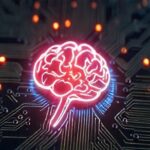Quantum AI Algorithms Unlock New Emerging Tech

Quantum AI in 2025 Transforming Drug Discovery from Theory to Therapeutic Breakthroughs In 2025, the integration of quantum computing and AI collectively known as quantum...
⏱️ Estimated reading time: 4 min
Latest News
Quantum AI in 2025 Transforming Drug Discovery from Theory to Therapeutic Breakthroughs
In 2025, the integration of quantum computing and AI collectively known as quantum AI is making significant strides in revolutionizing drug discovery. By combining quantum simulation capabilities with the predictive power of artificial intelligence, researchers are overcoming one of the most complex challenges in modern medicine: efficiently discovering effective drug candidates for previously undruggable targets.
Let’s explore the cutting-edge breakthroughs of 2025 and how quantum AI is shaping the future of pharmaceuticals.
1. The Quantum-AI Edge in Drug Design
Traditional drug discovery is painstakingly slow and prohibitively expensive. However as noted in a scholarly overview merging AI’s predictive models with quantum computing’s precision simulation offers a powerful alternative. Consequently this approach reduces discovery timelines from years to weeks or months while also enhancing accuracy..MDPI
How This Works:
- AI rapidly screens large virtual libraries of molecules.
- Quantum simulations refine predictions by accurately modeling molecular interactions at the quantum level.
This hybrid approach optimizes drug candidate selection more efficiently than either technology alone.
From Theory to Practice KRAS Targeting Success
A major milestone in 2025 involves targeting KRAS a notoriously undruggable cancer protein. Specifically researchers at the University of Toronto and Insilico Medicine implemented a hybrid quantum-classical AI model. As a result they successfully identified promising small-molecule inhibitors.
- The pipeline screened over a million compounds and shortlisted 15 for lab testing.
- Two molecules stood out showing strong binding to mutated KRAS variants in real biological assays.
Quantum-Enhanced Generative Models in Cancer Research
Zapata Computing partnered with Insilico Medicine and the University of Toronto to deploy the first quantum-enhanced generative AI model for drug candidate creation:

Expanding Chemical Space with Hybrid AI Platforms
Another leap forward comes from Model Medicines and their GALILEO platform which leverages deep learning to sift through trillions of molecules:
- Starting with 52 trillion candidates it narrowed down to 1 billion.
- From those 12 compounds were identified with demonstrated antiviral activity yielding a 100% hit rate in vitro.
While GALILEO doesn’t yet include quantum computing it exemplifies the transformative power of generative AI in massively scaling chemical exploration.
Quantum Hardware Progress Accelerates Narrow Simulations
- Quantinuum’s Gen QAI framework uses quantum data to train AI models with high real-world applicability such as drug discovery and logistics.
- Microsoft’s Azure Quantum Elements combines AI high-performance computing and quantum processors to support pharmaceutical research including generative chemistry tools.
- Denmark’s planned Magne quantum computer expected by late 2026 will offer transformative simulation power specifically aimed at drug discovery and material science.
These hardware advances are making hybrid quantum-AI drug discovery increasingly feasible.
Global and Institutional Momentum
- India’s new PARAM Embryo supercomputing facility at NIPER Guwahati provides 312 teraflops for molecular dynamics and 150 teraflops for AI/ML workloads enabling virtual screening and AI-supported drug design in the rich biodiverse context of Northeast India.
- India-based QpiAI focused on combining AI and quantum computing raised $32 million in July 2025 to support innovations in drug discovery agriculture, and manufacturing.
These investments illustrate a growing global commitment to quantum-enabled AI research.
The 2025 Inflection Point Hybrid Quantum-AI Leads the Way
Experts increasingly view 2025 as a breakthrough year for hybrid quantum-AI drug discovery:
- The synergy between quantum computing and generative AI is outperforming conventional methods, particularly in oncological and antiviral applications.
- The increasing accessibility of quantum platforms like Azure Quantum paves the way for more pharmaceutical R&D integration.
This year marks the tipping point where early proof-of-concept studies evolve into scalable, computational drug pipelines.
Roadblocks On the Horizon
Despite promise hurdles remain:
- Quantum hardware limitations: Current systems have low qubit counts and error rates still restrict scalability.
- Validation bottlenecks: AI-suggested compounds still require lab synthesis and testing which can be time-consuming.
- Regulatory clarity: There’s a growing need for frameworks to validate and approve in silico-driven drug candidates.
Conclusion: The Quantum AI Revolution in Drug Discovery
Quantum AI is rapidly shifting from theoretical potential to practical impact in 2025. From solving KRAS’s intractable challenge to generating antiviral leads with perfect in vitro hit rates this year marks a pivotal moment in computational drug discovery.
- Faster and more accurate
- Capable of exploring previously inaccessible molecular spaces
- Better at predicting efficacy and safety before lab testing
These breakthroughs aren’t just accelerating drug discovery they promise to bring safer more effective medicines to patients more quickly than ever before.
Related Posts

TikTok Rewards You for Limiting Doomscrolling
TikTok Now Gives Badges for Curbing Doomscrolling TikTok is rolling out a new feature to...
November 19, 2025

Ramp’s Valuation Soars to $32B in Just 3 Months
Ramp’s Valuation Soars to $32B Ramp, the corporate card and finance automation platform, has reached...
November 19, 2025

Luminar’s Financial Troubles: A Customer Dispute
Luminar’s Financial Troubles: A Customer Dispute Luminar Technologies, a key player in lidar technology, faces...
November 17, 2025











Leave a Reply